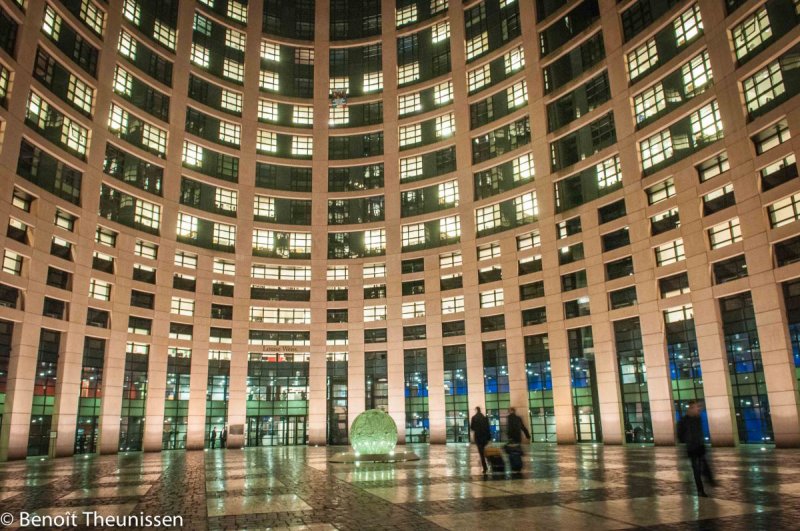European Features
European issues traverse a large area of our initial and continuous training activities. Some programs are even totally dedicated to them.
In the initial training, IHECS offers two 120 h European specialisations in the second year of the Masters degree: one in European journalism (Press-Information section), and the other in Communication and European affairs (Public relations section).
The Institute also includes a 295h Executive Masters in European Communication and Politics (bilingual FR/EN teaching), which combines solid theoretical teaching with a very practical approach centred around employability.

Each year between 15 and 20 students specialising in "European journalism" on the masters in press and information course go to Strasbourg to directly sit through a plenary session of the European Parliament.
The continuous training centre supported by IHECS, IHECS Academy, offers different modules for development in journalism, communication and European advocacy.
Finally IHECS supports the dissemination of European teaching and is developing tailor made programs for other partner universities that are not able to build their European cursus themselves.
European journalism in practice
IHECS leads different pilot European journalism teaching projects. In particular it is co-founder of Micro-Europa, a network of twelve journalism schools, originating from eight European countries, which work to achieve common thematic broadcasts, traversing local, transnational and European foundations and offering exchanges on solid methodology and projects.
In partnership with the School of journalism of UCL (Université catholique de Louvain) and the Institut des Arts de Diffusion (IAD), IHECS has also launched LN fm (104.8), an European community school radio.
The Bruxelles Bondy Blog, first pure Belgian player for general information achieved by the students, is also vesting in the field of European information. Its aim? No longer making Europe a separate column, but considering it as a key to reading and essential for the full understanding of economic, social and ecological issues faced by citizens, through the handling of important feature stories.
This practice enables teaching to be nurtured, constantly developing it, by drawing methodological teaching from experience. At the heart of different collaborations, IHECS is comparing its experience with that of its partners, is disseminating good practices and preparing theoretical and political proposals.
IHECS a player of the European Civil Society
IHECS also aims to stimulate public debate and group thought surrounding major challenges as regards European information and communication. The institute is part of different academic networks and the civil society, such as EJTA (European Journalism Training Association) and EUPRERA (European Public Relations Education and Research Association) of which it is a founder member of the Citizens For Europe platform.